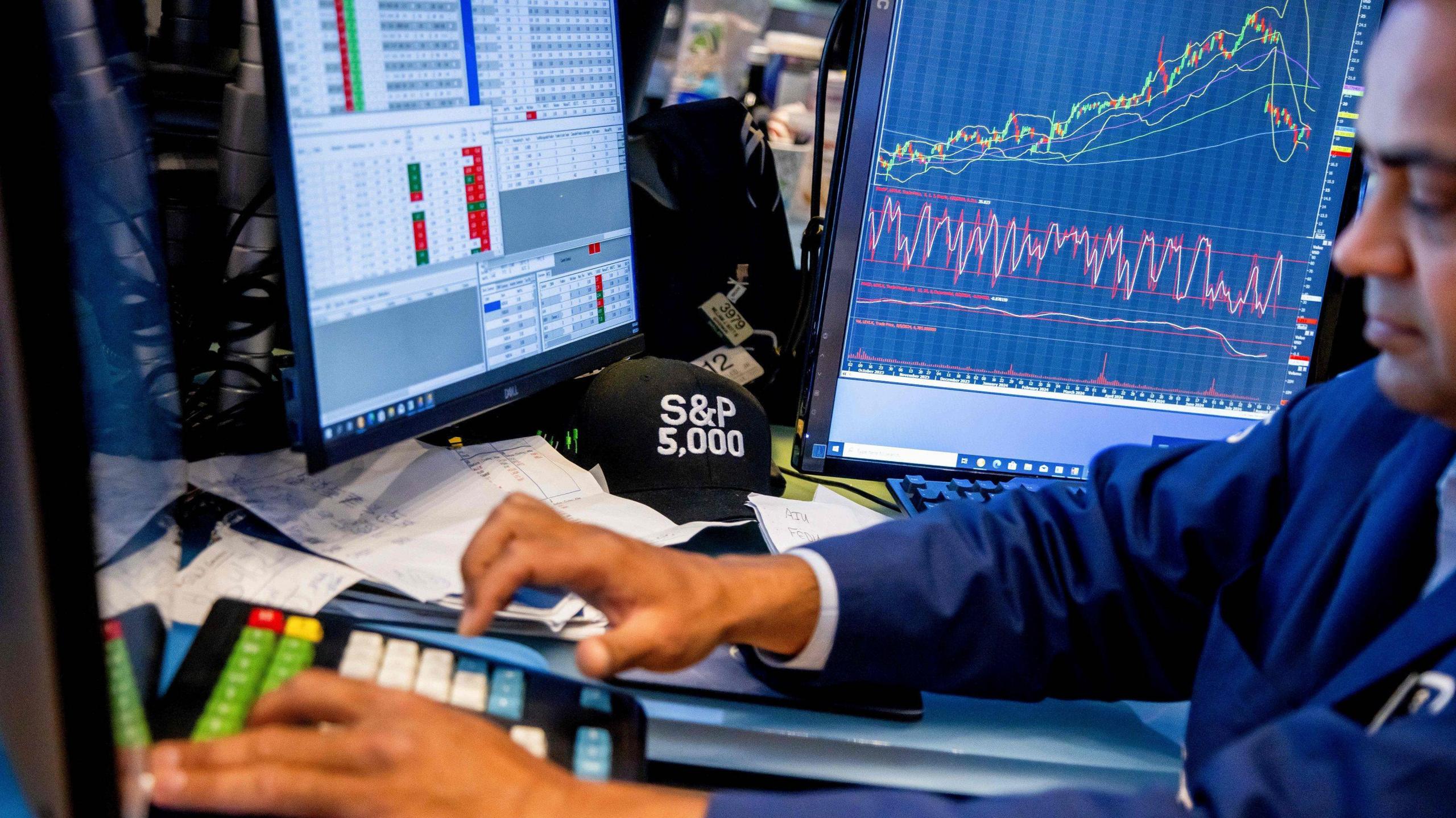US stocks tumble on fears over slower growth

- Published
US stock markets fell sharply on Monday following falls in Europe and Asia as fears rose that the American economy is heading for a slowdown.
The technology-heavy Nasdaq index opened 6.3% lower after a sharp decline at the end of last week, but pared its loses during the day.
The other main US indexes also opened sharply down, while stock markets in Europe and Asia plunged with Japan's Nikkei 225 falling by some 12.4%.
It comes after weak jobs data in the US on Friday sparked concerns about the world's largest economy.
The US Federal Reserve also held off cutting interest rates last week - something that typically boosts growth - in contrast to other central banks such as the Bank of England.
And there has been concern that shares in big technology companies, particularly those investing heavily in artificial intelligence (AI), have been overvalued and are now facing difficulties.
Chipmaker Intel announced major layoffs last week as well as disappointing financial results, and there is speculation that its rival Nvidia, which makes AI chips, will delay its latest product launch.
At the end of the trading day in New York:
The Dow Jones index, which features America's 30 biggest listed companies, was down 2.6% having pared its losses, while the tech-heavy Nasdaq was 3.4% lower and the S&P 500 was down 3%.
Shares in big-hitting tech stocks were hit hard, with Nvidia down 6.3%, Amazon 4.1% lower and Apple down 4.8%.
In Europe, the CAC-40 in Paris trimmed earlier losses to end 1.4% lower while Frankfurt's DAX and the UK's FTSE 100 lost about 2% each.
Doubts about US economy
The market rout began on Friday after weaker-than-expected jobs data from the US fuelled speculation that its economy is slowing.
In July, US employers added 114,000 roles, far fewer than expected while the unemployment rate ticked up from 4.1% to 4.3%.
The figures raised concerns that a long-running jobs boom in the US might be coming to an end. It also stoked speculation about when - and by how much - the Federal Reserve will cut interest rates.
Simon French, chief economist at Panmure Liberum, said it was not yet clear if the jobs figures were an aberration because of Hurricane Beryl, a Category 5 storm that hit parts of the Gulf Coast of the United States in July, or because it was the first sign that companies were hiring fewer workers.
The most recent data showed that the US economy grew at an annual rate of 2.8% in the three months to the end of June, much stronger than most developed countries.
Is the US really heading for recession?
- Published5 August 2024
US jobs data weaker than expected
- Published2 August 2024
Shanti Kelemen, chief investment officer at M&G Wealth, told the BBC's Today programme it was hard to say whether the US would tip into recession or not.
"You can pick out evidence to create a positive story, you can also pick out the evidence to create a negative story," she said.
"I don’t think it universally points to one direction yet.”
The rout in US markets has spread globally amid fears of contagion.
As the Nikkei plunged in Japan, stock markets in Taiwan, South Korea, India, Australia, Hong Kong and Shanghai all tumbled by between 1.4% and 8% on Monday.
Japan's problems stem in part from its currency, the yen, which has been strengthening against the US dollar since the Bank of Japan raised interest rates last week.
It has made stocks in Tokyo - and Japanese goods in general - more expensive for foreign investors and buyers.
At the same time inflation in Japan rose by more than expected in June while the economy shrank in the first three months of the year.